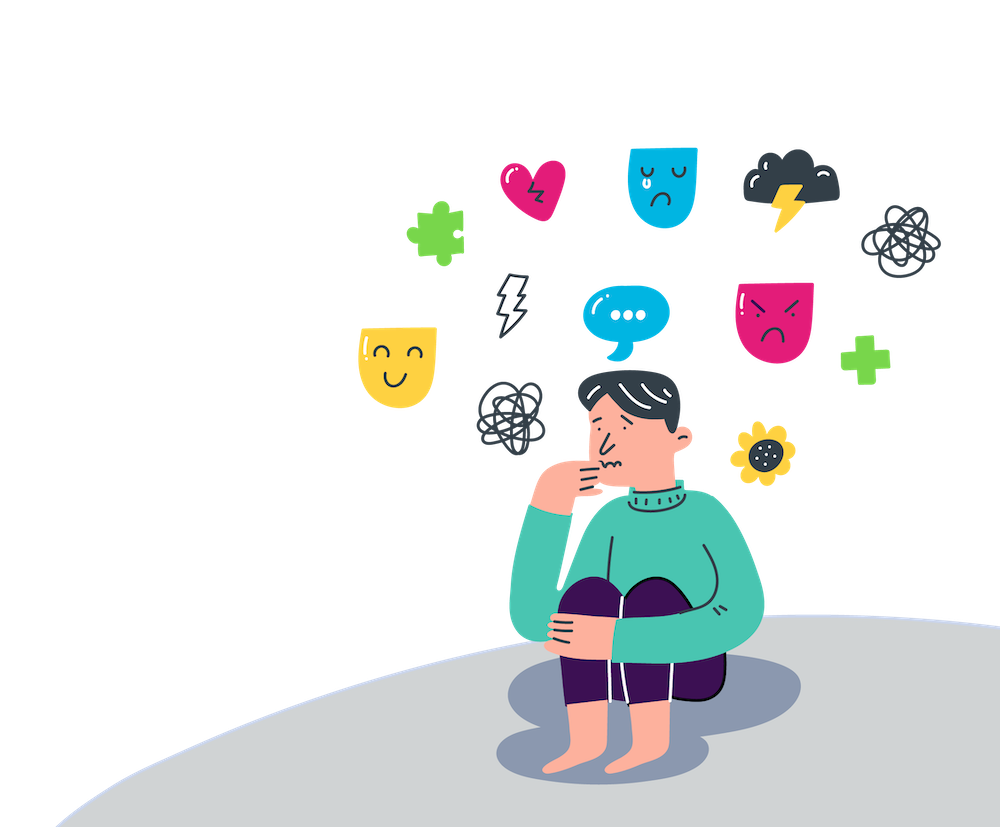Achieving Stability with Specialized Inpatient Mental Health Treatment
Achieving Stability with Specialized Inpatient Mental Health Treatment
Blog Article
Comprehensive Inpatient Mental Health And Wellness Solutions for Effective Treatment
Inpatient mental health solutions stand for a crucial element of the health care system, giving a organized and extensive atmosphere for people experiencing extreme mental distress. These solutions use a multidisciplinary strategy, incorporating numerous evidence-based therapies to deal with the intricate demands of clients. However, the effectiveness of such comprehensive care expands past instant stablizing; it also incorporates the shift to outpatient assistance, a vital phase typically overlooked. Checking out the nuances of this continuum discloses considerable ramifications for both private healing and more comprehensive mental health and wellness end results. What elements truly influence this transition, and just how can we improve its effectiveness?
Comprehending Inpatient Mental Health Providers
Inpatient mental health solutions supply vital support for people experiencing severe emotional distress that can not be handled effectively in an outpatient setup. These services are designed to use an intensive degree of care in an organized atmosphere, typically within a health center or specialized facility. People admitted to inpatient programs typically show intense signs, such as self-destructive ideation, severe clinical depression, or psychosis, requiring continuous monitoring and treatment.
The admission process normally entails a detailed assessment by mental wellness professionals, that evaluate the individual's frame of mind, history, and instant demands. Once confessed, people take part in a range of healing modalities tailored to their certain requirements, consisting of medication administration, private treatment, and team sessions. This all natural strategy aims to stabilize the individual's problem, advertise safety, and foster coping abilities.
Inpatient psychological health and wellness solutions not just address instant wellness problems however additionally offer as a bridge to recurring care. By supplying a regulated environment, these services help with the development of therapy strategies that can be proceeded in outpatient setups, thus making certain a continuum of care and enhancing long-lasting outcomes for individuals with intricate mental health requirements.
Trick Elements of Effective Therapy
Efficient treatment in inpatient mental health solutions comprises a number of key components that promote recuperation and stabilization. An extensive assessment is necessary to identify the person's certain needs and difficulties. This evaluation educates the development of a tailored treatment plan, which acts as a roadmap for treatment.
An additional vital element is the multidisciplinary team approach. Cooperation amongst psychiatrists, psycho therapists, registered nurses, and social workers makes sure that different perspectives add to the client's care, boosting the performance of treatment. Evidence-based therapeutic modalities, such as cognitive-behavioral treatment (CBT) and dialectical habits therapy (DBT), are additionally important, offering structured techniques that address maladaptive thought patterns and behavioral concerns.

Finally, a concentrate on aftercare preparation is crucial to ensure a seamless shift to outpatient services, minimizing the danger of regression and promoting lasting wellness. These collective elements create an efficient therapy framework within inpatient psychological wellness services.
Advantages of Comprehensive Treatment

Thorough treatment in inpatient mental wellness solutions provides many advantages that dramatically boost person results. One of the key advantages is the alternative strategy to therapy, resolving not only the psychological signs and symptoms but likewise the physical, social, and emotional demands of people. This detailed evaluation permits customized interventions that advertise total wellness.
An additional benefit is the combination of multidisciplinary teams, which fosters collaboration amongst healthcare specialists. This joint setting makes sure that people get coordinated treatment, decreasing the danger of fragmented therapy and boosting communication among caregivers. Additionally, detailed treatment assists in continuity of solutions, allowing for seamless shifts from inpatient to outpatient settings, which is crucial for long-term recuperation.
)
Finally, the structured atmosphere of comprehensive inpatient treatment gives a safe space for people to involve in restorative tasks, assisting them develop dealing methods and durability. Jointly, these benefits add to more efficient treatment and improved lifestyle for individuals experiencing mental wellness dilemmas.
Evidence-Based Healing Approaches
In the world of mental health treatment, evidence-based restorative strategies play a critical role find in guaranteeing that individuals obtain effective and medically sustained interventions. These approaches incorporate the very best available research with clinical expertise and individual values, promoting a customized treatment experience that deals with private requirements.
Cognitive Behavioral Therapy (CBT) is among one of the most widely identified evidence-based approaches, concentrating on recognizing and changing adverse thought patterns and habits. This organized approach has demonstrated efficiency in dealing with problems such as depression, stress and anxiety, and PTSD. In A Similar Way, Dialectical Habits Therapy (DBT) is especially efficient for people with borderline personality problem, stressing the growth of psychological guideline and interpersonal performance skills.
Additionally, medication monitoring is usually an essential part of evidence-based therapy, as psychotropic medications can minimize symptoms and enhance general performance. Collaborative care designs, which entail multidisciplinary teams, further boost the effectiveness of inpatient solutions by ensuring thorough examinations and constant surveillance.
Ultimately, the assimilation of evidence-based therapeutic techniques not only advertises favorable clinical results but also equips clients, cultivating a sense of firm and strength in their psychological health and wellness trips.
Transitioning to Outpatient Support
The transition from inpatient mental health and wellness solutions to outpatient assistance notes a vital phase in a client's recovery journey. This period needs mindful preparation and control to make certain connection of care and to alleviate the threats of regression or see it here dilemma. Efficient discharge preparation should commence early in the inpatient stay, entailing a multidisciplinary team that consists of psychiatrists, psycho therapists, nurses, and social workers.
Crucial element of an effective change include the growth of a detailed aftercare plan tailored to the person's certain demands. This plan needs to outline follow-up visits, medicine monitoring, and restorative treatments, along with determine area sources and assistance groups that can promote ongoing healing.
In addition, individual and household education and learning is important during this stage. Comprehending the indicators of possible obstacles and the relevance click to find out more of sticking to treatment can empower clients and their support group.
Routine follow-up and review of the outpatient plan are necessary to resolve advancing obstacles. By fostering a collaborative connection between inpatient and outpatient service providers, the possibility of sustained healing boosts, eventually boosting the client's high quality of life and minimizing the danger of readmission.

Final Thought
In summary, extensive inpatient psychological health and wellness services provide an important structure for addressing severe psychological distress via a multidisciplinary strategy. By integrating evidence-based therapies, promoting a structured environment, and advertising family involvement, these services enhance therapy efficiency. The emphasis on security and the growth of dealing abilities not only aids in instant healing but additionally facilitates a smoother transition to outpatient care. Ultimately, such extensive treatment is vital for long-lasting psychological wellness and health.
The admission process usually involves a comprehensive evaluation by psychological health and wellness professionals, who assess the individual's psychological state, history, and immediate demands.Efficient therapy in inpatient mental health solutions consists of a number of essential parts that cultivate recuperation and stabilization.Comprehensive treatment in inpatient psychological health and wellness solutions provides numerous benefits that dramatically boost client end results.The change from inpatient psychological wellness solutions to outpatient support marks an important stage in a patient's recuperation journey.In summary, comprehensive inpatient psychological health and wellness services use a vital structure for attending to serious psychological distress via a multidisciplinary technique.
Report this page